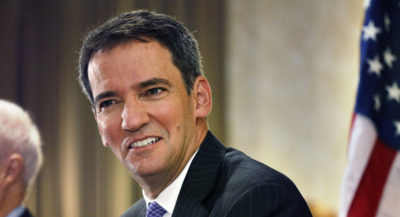This past Saturday set the stage for the June 30 Democratic nomination, with Andrew Romanoff taking the top ballot line at the Colorado Democratic Assembly; with former Colorado Governor John Hickenlooper in the second spot. No other Democratic party candidates qualified to be on the primary ballot. They will square off to determine who will represent the party in the November run for the U.S. Senate seat currently held by Republican Senator Cory Gardner.
The race between Hickenlooper, a two-term governor and Romanoff, who was speaker of the Colorado Senate during his tenure there, offers an element of suspense. Romanoff supporters tend toward the more progressive end of the party, while the more establishment members of the Democratic Party have tended to line up behind Hickenlooper.
The approach to the November 2020 election is like nothing that has occurred in recent election history. The recent campaigns for all candidates have, by necessity, been unconventional.
The coronavirus pandemic known as COVID-19 has impacted everything about normal life; including changing most everything about campaigning, as it has precluded large campaign rallies, in-person town halls, handshaking and kissing babies. Campaigns are adjusting, moving to virtual town halls and call-ins, deploying texting campaigns and eblast messaging to stay connected to voters.










Recent Comments